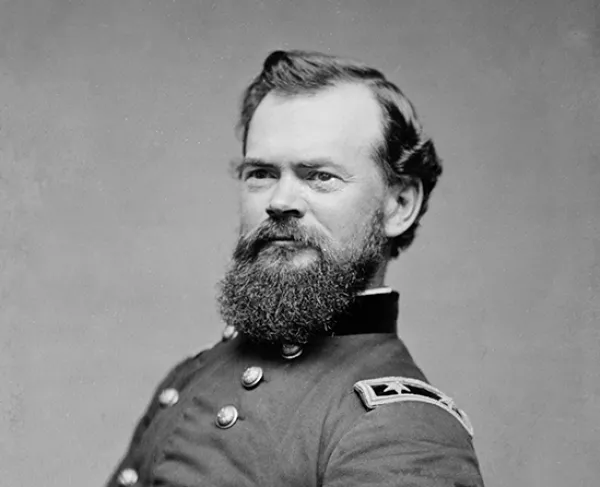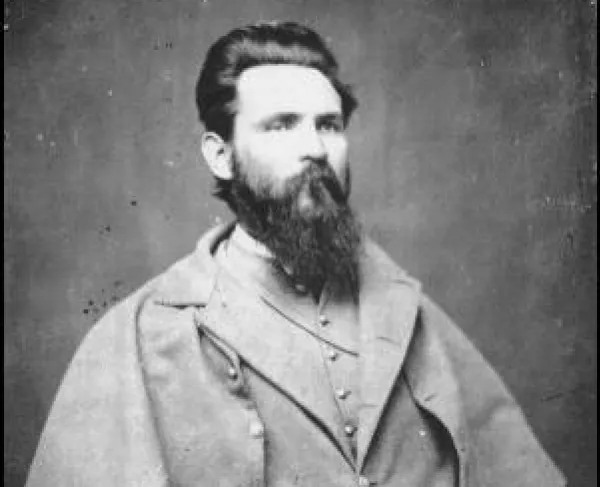
Raymond
Hinds County, MS | May 12, 1863
Rather than move directly on Vicksburg, Maj. Gen. Ulysses S. Grant and his Army of the Tennessee drove along a northeastern axis of advance. Grant’s ultimate goal was to isolate Confederate Gen. John C. Pemberton and Vicksburg from the rest of the Confederacy. Grant aimed to take the state capital of Jackson, while eliminating the threat Gen. Joseph E. Johnston and his Confederate forces in and around the city. The Federal commander, too, sought to disrupt the railroads and communications lines in and out of the capital. The destruction of the Southern Railroad in central Mississippi was a vital target.
Grant’s army advanced over a broad front. As it moved eastward from Port Gibson, Maj. Gen. John A. McClernand’s XIII Corps held the left, closest to the Big Black River; Maj. Gen. William T. Sherman’s XV Corps moved in the center; and Maj. Gen. James B. McPherson’s XVII Corps advanced on the right, farthest removed from the enemy—or so it was thought.
The march was hot and dusty, and water was scarce. On May 12, Grant directed his three corps to various crossings of Fourteenmile Creek to secure a source of water for his men and animals. It would also move his army into position for the planned lunge against the railroad.
Confederate Brig. Gen. John Gregg had been dispatched to Raymond with 3,000 men and orders to strike the Federals in flank or rear as they advanced. Faulty intelligence led him to believe that he would only face a small contingent of Union troops. Gregg’s intention was to hold the enemy in check with one regiment where the Utica Road bridged the Fourteenmile Creek while his other regiments attacked en echelon to the left, turned the Federal flank, and destroyed the enemy in his front. However, rather than the single brigade Gregg expected, McPherson’s powerful 10,000-man corps bore down on him.
Mississippi State Militia harassed the Federals throughout their morning’s march toward Raymond. The Mississippians were no match for the Federals, so they grudgingly fell back toward Raymond where they informed Gregg that a Union column was advancing along the Utica Road toward the town.
Just before 10 a.m., a skirmish line of Union infantry swept over a low ridge and moved cautiously into the valley of Fourteenmile Creek. As they neared the belt of timber that lined the stream, a deadly volley ripped into their ranks. Almost at the same time, the three guns of Capt. Hiram Bledsoe’s Missouri battery sent shells crashing among the Union skirmishers. With battle joined, Union Maj. Gen. John A. “Black Jack” Logan led the long blue column, deployed his lead brigade, and called up his artillery, which soon joined the fray.
Although outnumbered, Gregg ordered an attack. While the 7th Texas, led by Col. Hiram Granbury, engaged the Federals along the Utica Road at the bridge, Gregg’s other regiments splashed en echelon across the creek and slammed into the Federals. The blue line began to waver and break in places, but Logan rode forward and, with “the shriek of an eagle,” turned the men back to their places.
Union resistance stiffened, and by noon, as McPherson directed fresh troops to extend his line both left and right, the Confederate attack faltered. By 1:30 p.m., the tide of battle shifted as Gregg’s battered troops were confronted by five Union brigades with still more Federals arriving on the field. McPherson launched a counterattack that compelled Gregg to abandon the field and retreat through Raymond toward Jackson.
With a victory in hand, Grant divided his columns and continue north toward the Southern Railroad, while also pressing eastward toward Jackson.
Raymond: Featured Resources
All battles of the Grant's Operations Against Vicksburg Campaign
Related Battles
12,000
4,100
446
515















